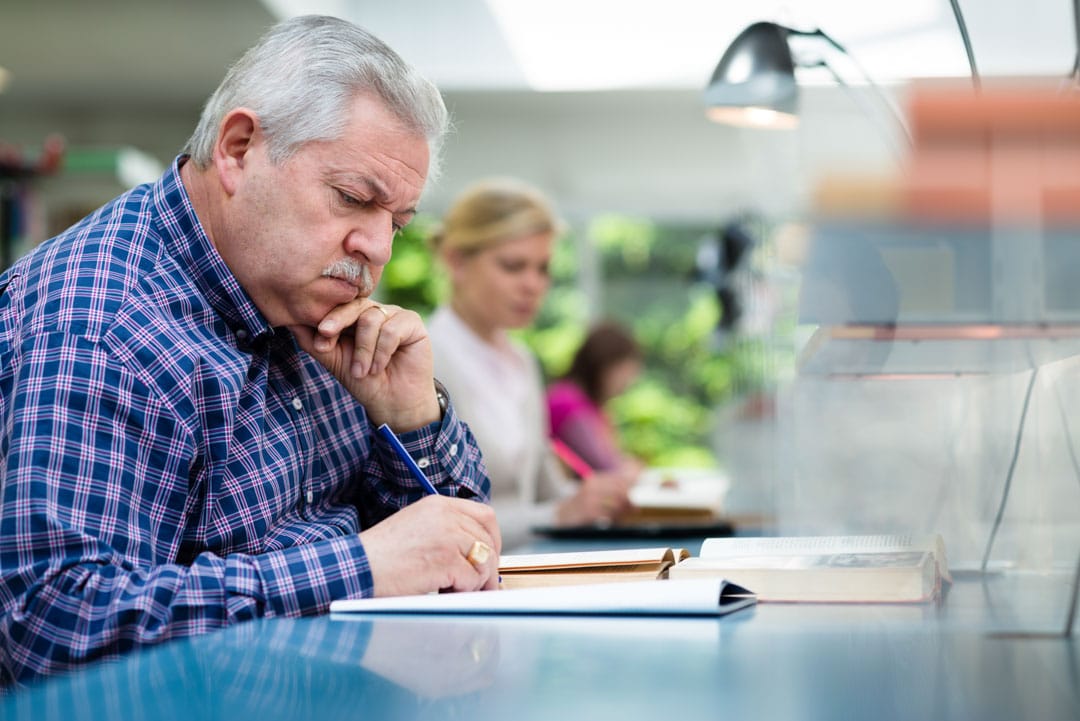


Unlimited memory by Kevin Horsley
back to HOME > Personal Development > Personal Productivity >
THE BLUE TREE
Personal
Productivity

CEFR B1
Intermediate
warm up
Answer the questions below. After each question there is an audio with a model answer Listen to it and use it to improve yours. Remember: never be content with your first attempt 🙂
- Is memory an innate talent or a creative skill?
- What can we do to improve our memory?
- What are the benefits of having good memory?
part one
Welcome to our lesson on memory improvement! Today we’re going to be discussing some powerful techniques that you can use to boost your memory, based on the principles outlined in Kevin Horsley’s book “Ultimate Memory.” Whether you’re a student looking to improve your study habits, a professional looking to stay ahead in your field, or just someone who wants to keep your brain sharp, these techniques will help you do just that. You’ll learn about mnemonics, visualization, and other methods for remembering information more effectively. By the end of this lesson, you’ll have a solid understanding of how to improve your memory and be well on your way to achieving your goals. So, let’s get started!
key language
watch the video
COMPREHENSION
- ⌚ 0:41 What do the examples of a lawyer, surgeon and a speaker mean?
- ⌚ 0:47 How important is it to have good memory for our careers?
- ⌚ 0:56 Is good memory an innate talent or a creative habit?
part two
key language
watch the video
COMPREHENSION
- ⌚ 1:05 What does it mean that memory is ‘not something that happens to us’?
- ⌚ 1:12 What’s the secret of having good memory?
- ⌚ 1:23 What has Kevin Horsely achieved as regards improving his memory?
- ⌚ 1:40 What are the two methods we will learn about in this lesson?
part three
key language
watch the video
COMPREHENSION
- ⌚ 2:00 What does SEE stand for?
- ⌚ 2:18 How can we use our senses to remember better?
- ⌚ 2:28 What is the goal behind the ‘exaggerate’ step in SEE?
- ⌚ 2:37 Does learning need to be serious?
- ⌚ 2:46 How can we energize the information we want to remember?
- ⌚ 3:25 How did Nathan use the SEE method in his studies?
part four
key language
watch the video
COMPREHENSION
- ⌚ 3:46 How did he remember the relation between Dopamine and Cocaine?
- ⌚ 4:06 What did he imagine to remember the connection between Anandamide & Marijuana?
- ⌚ 4:25 Do you remember what Serotonin does and how it relates to Prozac?
- ⌚ 4:51 What helped him remember Norepinethrine & Ritalin?
- ⌚ 5:08 Do you remember what endorthins do?
- ⌚ 5:21 What else helped him remember this information?
part five
key language
watch the video
COMPREHENSION
- ⌚ 5:36 How can we remember a long list of items using the Placing method?
- ⌚ 5:52 What is our mind good at?
- ⌚ 6:40 What does it mean that “the journey is like the paper, and the images are like the ink?
- ⌚ 6:56 What kind of places can we use to remember things better?
- ⌚ 7:19 Will we ever run out of places in our mind to store new information?
- ⌚ 7:33 Do you agree with Nathan, that “perfect memory is a skill, not a special gift”
POLL
Cast your vote in the poll below.
DISCUSSION
Discuss the questions below.
- How effective do you think the ideas from this lesson are in the context of remembeing things better?
- Can you think of a specific time when you had to use a mnemonic device to remember something important? How did it work for you?
- How do you think our emotions affect our ability to remember things? Give an example.
- How do you think you can improve your memory?
Can you think of a time when your memory failed you? What do you think caused the failure and how can it be prevented in the future? - How does the process of memorization differ for different types of information (e.g. facts, names, faces, etc.)?
- How do you think technology has impacted our ability to remember things?
lesson glossary
COMMENTS
What do you think of the ideas presented in this lesson? Have you ever worked on improving your memory in any systemic way? Would you like to have better memory? How would having better memory help you in personal and professional life?
Share your views and experience here.

Atlas of the Heart by Brene Brown

When by Daniel Pink
back to HOME > Personal Development > Personal Productivity >
THE BLUE TREE
Personal
Productivity

CEFR B2
Upper
Intermediate
warm up
- When do you feel the most energized during the day?
- What do you do when your energy levels are dropping?
- How well do you know your body as regards your circadian rhythm?
part one
key language
watch the video
COMPREHENSION
- ⌚ 00:39 When do people perform the worst during the day according to research?
- ⌚ 00:49 What is the most unproductive time in the UK?
- ⌚ 01:07 Why does Daniel Pink call this time the Bermuda Triangle?
- ⌚ 01:18 What is the daily Circadian Rhythm?
- ⌚ 01:43 What are the three stages of our attention and mental ability during a day?
part two
key language
watch the video
COMPREHENSION
- ⌚ 1:58 What is the best thing you can do at the beginning of a trough?
- ⌚ 2:14 How long should our naps be?
- ⌚ 2:25 What effect does a 10 minute nap have?
- ⌚ 3:05 What is Nappuccino and why is it so effective?
- ⌚ 3:17 If you cannot take a nap, what should you do during a trough?
- ⌚ 3:32 If we absolutely have to do important work during a trough, what should we remember about?
- ⌚ 3:44 When should we do our most important work?
part three
key language
watch the video
COMPREHENSION
- ⌚ 4:00 What are the two categories of important work?
- ⌚ 4:17 What are some examples of logical work?
- ⌚ 5:18 What makes the Linda Problem a logical problem? Did you get the answer right?
- ⌚ 5:18 When did people answer this problem correctly more often?
part four
key language
watch the video
COMPREHENSION
- ⌚ 5:34 Which side of the brain does insight work rely on?
- ⌚ 5:40 What are some examples of insight work?
- ⌚ 6:19 Why was the coin fake?
- ⌚ 6:25 What is required to solve insight problems like the Coin Problem?
- ⌚ 6:25 When did people answer this problem correctly more often?
part five
key language
watch the video
COMPREHENSION
- ⌚ 7:01 How should we organize our work taking the above information into account?
- ⌚ 7:16 Who are the people who have a late chronotype? Is this you?
- ⌚ 7:38 How can we know if we have a late chronotype?
- ⌚ 8:30 What is the ultimate goal that can help us be most productive?
POLL
lesson glossary
COMMENTS
Do you agree that it as important to know when your trough? What do you do when your energy levels are dropping? How well do you know your own Circadian Rhythm?
Share your views and experience here.










COMMENTS
Share your views and experience here.